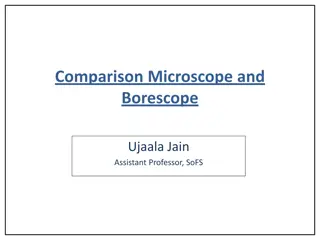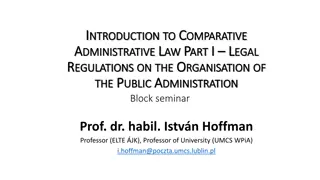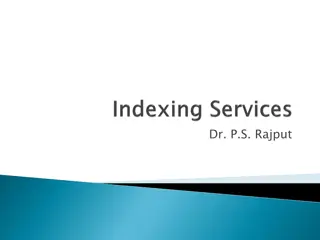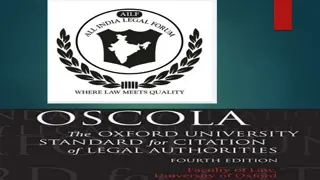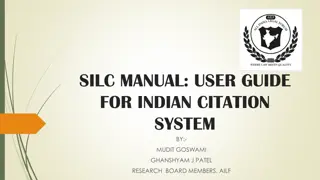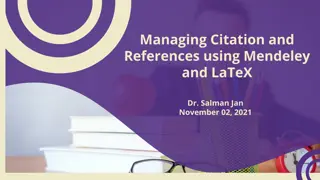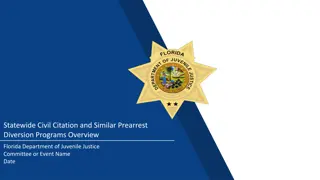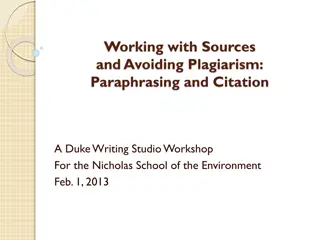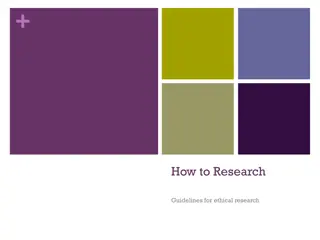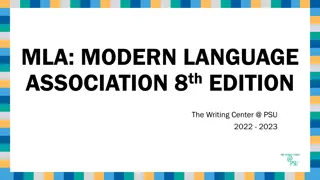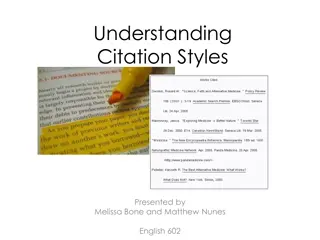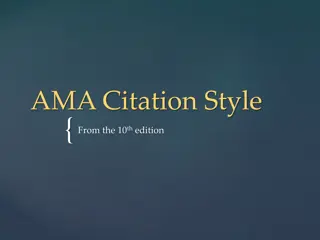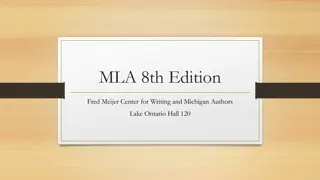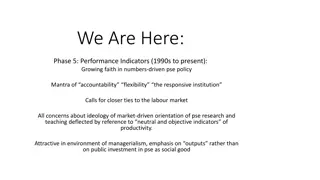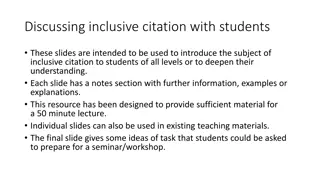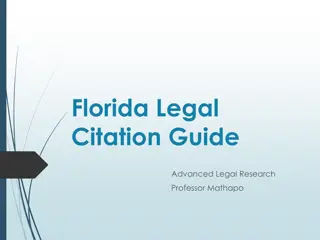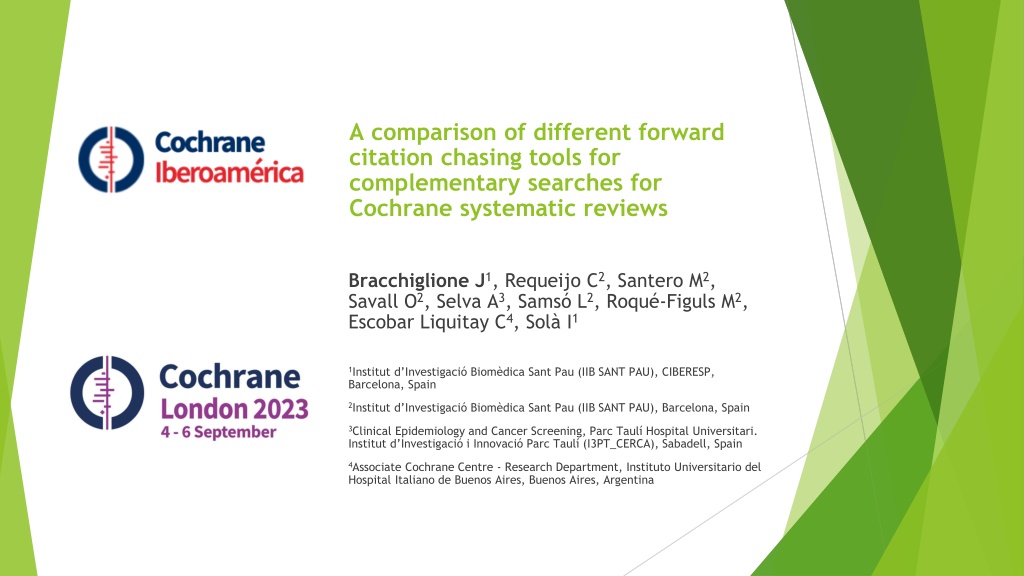
Comparison of Forward Citation Tools for Systematic Reviews
Explore the performance of different forward citation chasing tools for conducting updates of systematic reviews. Learn about the efficiency of forward citation search strategies compared to traditional database searches. The study compares various resources and aims to enhance research retrieval methods for comprehensive systematic reviews.
Download Presentation

Please find below an Image/Link to download the presentation.
The content on the website is provided AS IS for your information and personal use only. It may not be sold, licensed, or shared on other websites without obtaining consent from the author. Download presentation by click this link. If you encounter any issues during the download, it is possible that the publisher has removed the file from their server.
E N D
Presentation Transcript
A comparison of different forward citation chasing tools for complementary searches for Cochrane systematic reviews Bracchiglione J1, Requeijo C2, Santero M2, Savall O2, Selva A3, Sams L2, Roqu -Figuls M2, Escobar Liquitay C4, Sol I1 1Institut d Investigaci Biom dica Sant Pau (IIB SANT PAU), CIBERESP, Barcelona, Spain 2Institut d Investigaci Biom dica Sant Pau (IIB SANT PAU), Barcelona, Spain 3Clinical Epidemiology and Cancer Screening, Parc Taul Hospital Universitari. Institut d Investigaci i Innovaci Parc Taul (I3PT_CERCA), Sabadell, Spain 4Associate Cochrane Centre - Research Department, Instituto Universitario del Hospital Italiano de Buenos Aires, Buenos Aires, Argentina
Conflict of interest I have no actual or potential conflict of interest in relation to this presentation.
Forward citation chasing is the use of a citation index to retrieve references that cite a source. Currently recommended as a complement to find all possibly relevant research for systematic reviews (SRs) Introduction Recently, new tools have been developed to ease this task, but their performance has not been compared yet.
Objective To estimate and compare the performance of different resources for forward citation searching in the context of conducting updates of systematic reviews (SRs). As a secondary objective, we aim to explore how efficient a forward citation search strategy could be by itself as a way to update a SR, compared to a traditional boolean search strategy in electronic databases.
Methods Original version: First version of the SR within the Cochrane Database of Systematic Reviews. Updated version: Most recent version of the same SR. We included Cochrane SRs with at least two published versions The original SR must have included at least one primary study. The updated SR must have included at least one additional new primary study in respect to the original version
Methods Index reference set Target reference set References of the included primary studies in the original SR References of the new included primary studies in the updated SR Tool WoS Reference of the original SR itself Scopus GoogleScholar Citationchaser Paperfetcher Citationcloud
Results Mean sensitivity (95% CI) Mean precision (95% CI) Mean NNR (95% CI) Tool So far, 10 pairs of SRs analysed. 382 (44.7 719) WoS 0.58 (0.34 0.82) 0.0041 (0.0011 - 0.0072) 423 (32.8 812) Median index reference set: 7 (range: 3 - 13) Scopus 0.64 (0.37 0.91) 0.0046 (0.0007 - 0.0084) 563 (158.2 967) Google Scholar 0.66 (0.38 0.93) 0.0026 (0.0005 - 0.0047) Median target reference set: 4 (range: 1 - 11) 516 (84.9 947) Citationchaser 0.59 (0.35 0.84) 0.0037 (0.0006 - 0.0067) 399 (39.1 759) Paperfetcher 0.60 (0.36 0.84) 0.0048 (0.0008 - 0.0087)
Discussion Google Scholar showed the best sensitivity, but the highest NNR. WoS showed the lowest NNR, although it had 8% less sensitivity than Google Scholar. Scopus seems to have the better balance among sensitivity and precision. Limitation: Analysis may be influenced by reviews with one or few new primary studies in the updated SRs. There is no citation tool with a better performance over the rest. Forward citation search could not be used as a stand alone method to update SR.
Thank you Contact information: javier.bracchiglione@gmail.com @JBracchiglione



